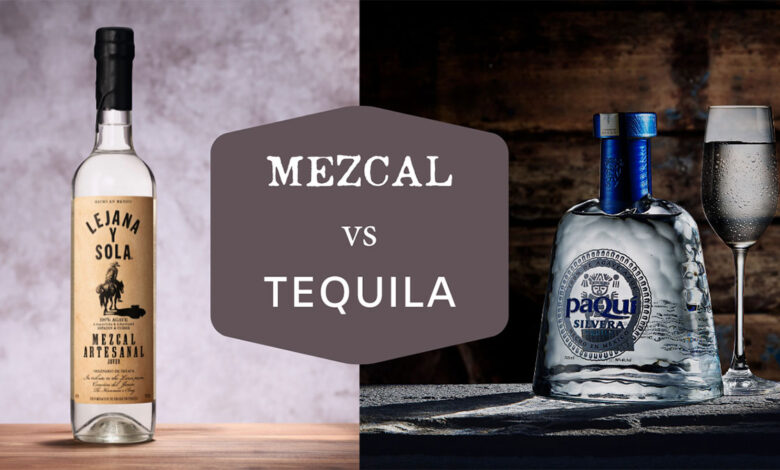Understanding Mexican Spirits – the Difference Between Tequila and Mezcal

Do you enjoy sipping on a Tequila? Perhaps you have recently branched out and tried a Mezcal? Both are delicious and both come wrapped in their own history, story and tradition.
These two iconic beverages tell a story of culture, craftsmanship, and the diverse terroir of Mexico.
But what is the difference between Mezcal and Tequila? Is it in their geographical designation, agave varieties, production process, or flavour profiles?
Let’s take a closer look at these iconic Mexican spirits.
Origins and Geographical Identity
Mezcal and Tequila both originate from Mexico. Tequila’s roots are deeply entrenched in the region of Jalisco, alongside parts of Guanajuato, Michoacán, Nayarit, and Tamaulipas. In contrast, Mezcal’s identity is more diverse, with production spanning across various states, including Oaxaca, Guerrero, and Durango.
This geographical distinction not only marks their territorial uniqueness but also influences the nuances in taste and texture that these spirits offer.
In terms of geographical designation, Tequila is produced in specific regions of Mexico, primarily in the state of Jalisco and certain parts of a few neighbouring states. Whereas Mezcal can be produced in several states across Mexico, including Oaxaca, Guerrero, and Durango.
The Essence of Agave
At the heart of both Mezcal and Tequila lies the Agave plant, a symbol of Mexican heritage.
Tequila is exclusively made from the Blue Agave (Agave tequilana), while Mezcal enjoys the freedom of variety, with over 30 types of Agave, including the popular Espadín, used in its production.
Production Process
Tequila production has evolved to incorporate more industrial methods, steaming the Agave hearts in above-ground ovens, and employing mechanical milling for juice extraction.
Mezcal makers, however, are custodians of an ancestral craft, often roasting the Agave in earthen pits lined with volcanic rocks. This traditional approach infuses Mezcal with its characteristic smoky flavour, a stark contrast to the smoother, more citrusy notes of Tequila.
Here are the key points:
- Tequila production typically involves baking or steaming the agave hearts in above-ground ovens, followed by mechanical extraction of the juice and fermentation in large vats.
- Mezcal production traditionally involves roasting the agave hearts in underground pits lined with hot rocks, which imparts a distinct smoky flavour. The roasted agave is then crushed, fermented with natural yeasts, and distilled in clay or copper pots.
Flavour Profiles
Mezcal’s flavour is as bold and varied as its production process. It is renowned for its robust, smoky taste, often intermingled with earthy and fruity undertones. Each sip of Mezcal is a testament to the Agave variety and the unique terroir of its origin.
Tequila, on the other hand, boasts a smoother profile, predominantly citrusy with a sweetness that is unmistakably derived from the Blue Agave.
Here is a quick overview of the key flavour characteristics of these two spirits:
- Tequila tends to have a smoother, more citrusy taste.
- Mezcal is known for a smokier and more robust flavour, with earthy and sometimes fruity notes.
Check out this curated range of premium Tequilas from Mexico here.
Global Enjoyment
Both Mezcal and Tequila are more than spirits. They also serve as cultural ambassadors of Mexico. Tequila, with its global popularity, has become synonymous with Mexican identity in the world of spirits. Mezcal, though lesser-known globally, is gaining recognition for its artisanal nature and the depth of its flavour palette.
In terms of the global market for Tequila, it has been showing a promising growth trajectory.
Fortune Business Insights reports that in 2021, the market was valued at USD 9.89 billion and is projected to grow to USD 15.57 billion by 2029. This growth is expected at a Compound Annual Growth Rate (CAGR) of 5.89% during the forecast period from 2022 to 2029.
This significant growth in the Tequila market reflects the increasing global appreciation for this distinct Mexican spirit.



